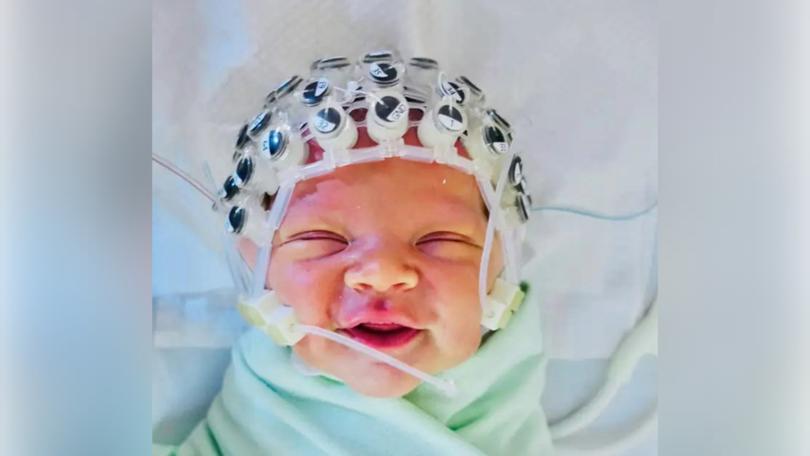How headphone-wearing infants only a few days old are helping scientists unravel the secrets of our brain
A baby, no more than a few days old, has its head covered in electrodes - but it’s no emergency intervention to save the bub’s life. It’s to answer one question: do they understand rhythm?

Just a few days old, wrapped in swaddling and its head covered in electrodes, this newborn baby undergoes a test to measure the electrical activity of its brain.
But this is no emergency intervention to try to save the life of a critically ill infant.
In fact, it’s an experiment to see if newborns have an intrinsic understanding of the rhythm of music.
Sign up to The Nightly's newsletters.
Get the first look at the digital newspaper, curated daily stories and breaking headlines delivered to your inbox.
By continuing you agree to our Terms and Privacy Policy.The test, carried out by scientists at the University of Amsterdam in the Netherlands, involved performing an electroencephalogram — where electrodes are used to monitor brain activity that indicates its response to external changes.
In this study, 31 babies — all under six days old — wore earphones, through which researchers played a drum beat of the kind heard in most pop songs. When a single beat was dropped from the pattern, the EEG registered a change in the babies’ brain activity — indicating they were able to sense a shift in the drum rhythm, even though they’d never been exposed to these noises before.
Writing in the journal Cognition earlier this year, the researchers said the findings showed babies are born with a sense of rhythm that’s fundamental to humans’ appreciation of music. But is it ethical to perform experiments on tiny babies — especially experiments where there is no obvious medical benefit, such as this study?
This question is covered by the Declaration of Helsinki, a complex set of ethical principles first drawn up by the World Medical Association in 1964, to set the boundaries for who should and should not be human guinea pigs for research. These state that ethics committees — experts who vet all medical research projects — must decide whether participating in experiments amounts to “more than minimal risk” for the participant.
“Anything that an ethics committee perceives as more than minimal risk is very unlikely to be allowed to go ahead,” said Dominic Wilkinson, a professor of medical ethics at the University of Oxford.
“In this case, exposing babies to drum beats would be judged to be fine if the committee was happy that it didn’t mean being exposed to any more noise than they would be in everyday life,” he said.
“But if the researchers planned to put headphones on a baby and play it heavy metal music very loudly that would not be allowed. In the drum-beat experiment, noise levels were capped at around 80 decibels — roughly the same as a vacuum cleaner.”
